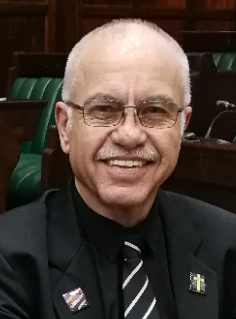FERRIER INTERNATIONAL thanks Cees Bruggemans, Chief Economist of FNB for this article which we share with you.
***************************

“SURPRISE!!”
|
|
| By Cees Bruggemans, Chief Economist FNB |
| 2-?August 2010-?-?-?-?-?-?-?-?-?-?-?-?-?-?-?-?-?-?-?-?-?-?-?-? – -?-? SURPRISE!! – |
|
There are a good number of surprises playing out daily, making it perhaps difficult to understand where we are heading (but perhaps also not THAT difficult).
One surprise is the way formal jobs keep on being lost in an economy a full year into growth recovery.
But that shouldn’t be a surprise, given the level of many union wage settlements in a constrained growth condition.
When inflation is approaching 4%, and wage demands remain double digit, there are really only two ways of squaring the circle.
In the private sector they lay off workers in order to gain more productivity from existing resources (for your competition won’t allow you to load your customers unduly and your shareholders still want a return, so something in the middle needs to give if costs rise too much).
In the public sector they can still increase jobs as well as grant high wage increases (and increase the private tax burden, borrow more and/or cut service delivery).
The Greeks used to be very good at the second proposition but they went too far. They are now apparently champions in doing it the other way.
If a thing is too good to be true, it eventually is (even if Greece took a while proving that, just like we may now be doing).
Another surprise is the economic contribution from the world cup. A lot of it came in the six year run-up to that event, in the way we finally got busy with getting our infrastructure right.
But the month of soccer may have only yielded windfalls to those in big cities directly exposed to the event. That is ultimately a narrow base. The data for the next few months will bear watching, not least because the soccer has ended, things turning rather quiet out there.
Yet another surprise has been the anxiety expressed by some of our macro policymakers about the potential for a global relapse and its consequences for us.
Being close to the global fire, at government level at G20 but also institutionally such as the IMF, OECD and BIS, may have created a healthy sense of dread as to what we may still see happen next.
In contrast, financial markets seem to interpret US weakness and Fed chairman Bernanke describing the present outlook as ‘unusually uncertain’ as a guarantee that he won’t just stand there if more support were to be needed to prevent too much of a sagging.
Thus the Bernanke put, like the Greenspan put before him, is seen as a reality, by its presence lowering rather than increasing the likelihood of double dips.
That’s real American democracy in action. And nearly all know it and act thereon.
Another surprise has been that in a country foreswearing nationalization at every turn, it is interesting to note how new mining rights are taking forever to be confirmed, and how agriculture is facing increasing challenges.
These things presumably aren’t intended to foster confidence. What they do aim to achieve is a mystery.
Yet another surprise, given so many negative surprises and perceptions as enumerated here, is that the Rand is firming once again ever so prettily.
This may have nothing to do with our interest rate decisions after all, as the Rand runs in the middle of a global pack of hounds all being affected in similar ways.
The reason for so much Rand strength?
Probably the still extremely attractive nature of our corporate assets and government bonds and the good returns these continue to offer.
With the rich developed world seriously depleted of good asset returns, with their interest rates near zero and likely to stay so for some while, with currencies such as Dollar and Euro likely to be weighed down by their own weighty structural shortcomings, it is no wonder that capital keeps streaming our way.
Yet how long could that go on if one keeps undermining the legal underpinnings and financial health of such assets, with policymakers fearfully focusing on performance downside rather than realistically exploring the upside?
But then one of nature’s great surprises are the oceanic tides, with nothing being able to resist an incoming tide (not even a Canute), but similarly nothing being able to prevent the tide running out either once it has turned.
For today we know that far greater forces far from here are involved, in the case of the tides this being the Moon and its shifting gravity.
In our economic world today, events overseas are likewise proving to be extremely powerful forces, for now showering us with an incoming capital tide purely a function of its own logic (and our apparent prettiness).
But the moment will come when crises are past, and yields better elsewhere, while our prettiness may by then be seen to be skin deep rather than long lasting.
But somehow this doesn’t seem to bother us, living as we do for today. Let someone else look after tomorrow.
Cees Bruggemans is Chief Economist of First National Bank. Register for his free-?-?-?-?-? e-mail articles on www.fnb.co.za/economics |
FERRIER INTERNATIONAL sharing the news with you.







